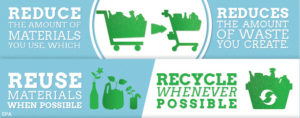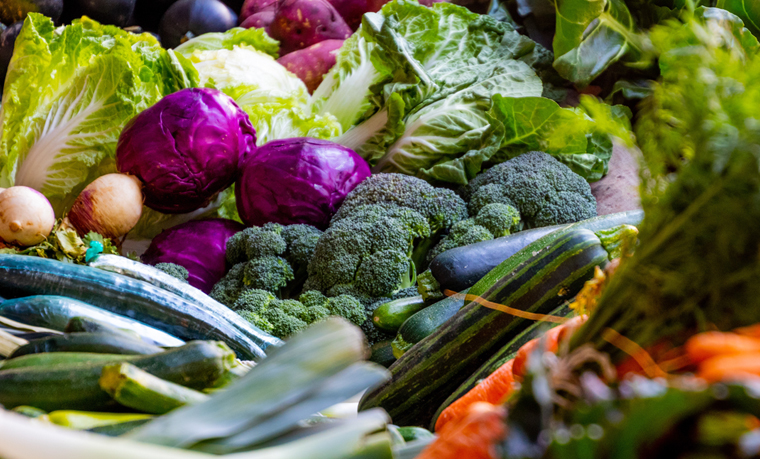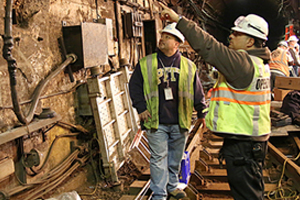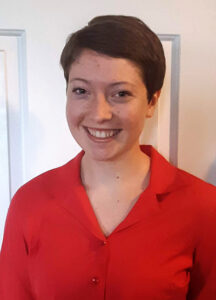MAY 2020
How to Reduce Your Greenhouse Gas Emissions
The challenges posed by climate change can feel overwhelming at times, but we all have the ability to reduce greenhouse gas emissions in our day-to-day lives.
Combating climate change seems like a big job, but we can all play a part. Changes in personal behavior, accompanied by more wide-ranging policy shifts, can reduce greenhouse gas emissions and help mitigate the worst effects of climate change. Try implementing some of these suggestions today, and share this list with friends and neighbors. Every little bit counts.
AT HOME
1) Perform a home energy audit
- Hiring a professional auditor can help you save emissions and money. A professional auditor will determine where your home is losing energy and suggest ways to increase your home’s efficiency. The New Jersey Home Performance with ENERGY STAR program offers financial incentives on energy efficient improvement packages. See the website for details and availability.
- If you’re not ready for a professional audit, conduct one yourself. Steps include scanning for drafts, checking your insulation, and ensuring that your heating and cooling systems are running as efficiently as possible. Visit energy.gov for more information (www.energy.gov/energysaver/home-energy-audits/do-it-yourself-home-energy-audits);
2) Choose renewable energy
- You don’t need solar panels on your house to switch to renewable energy. Thanks to New Jersey’s energy deregulation law, it’s easy for consumers to opt for renewable electricity like solar or wind power by choosing from a list of third-party suppliers. See the NJ Board of Public Utilities website for details (nj.gov/bpu/commercial/shopping.html).
3) Buy energy-efficient appliances
- When shopping for home appliances, opt for Energy Star-labeled products, which are certified by the Environmental Protection Agency (EPA) to be more energy efficient.
- Simple changes in home appliances can have a big impact. LED lights, for example, save at least 75% more energy than incandescent lights and last 25 times longer. New Jersey’s Clean Energy Program offers rebates on a wide range of energy efficient appliances and lighting. Visit the Clean Energy Program website for lists of qualifying models.
- Unplug appliances when you’re not using them to prevent unnecessary energy consumption.
4) Conserve energy
- The default setting for many hot water heaters is 140°F. Simply turning the thermostat down to 120°F can significantly reduce your energy use and potentially save you hundreds of dollars on your annual energy bill, and you will hardly notice the difference.
- Be sure your furnace is routinely cleaned and maintained to operate at peak efficiency.
- Wash laundry in cold water instead of hot.
- Choose ways to keep cool during hot weather that consume less electricity, like using fans instead of air conditioning, making sure your home is properly insulated, and taking cold showers.
5) Reduce household waste
 Every step in the life cycle of common household products, from production to disposal, adds greenhouse gases to the atmosphere. You can help reduce these emissions by limiting purchases of new products and reusing old ones.
Every step in the life cycle of common household products, from production to disposal, adds greenhouse gases to the atmosphere. You can help reduce these emissions by limiting purchases of new products and reusing old ones.- Opt for reusable and used goods rather than new and disposable products.
- Switch to reusable products, like metal water bottles, and products without plastic packaging, like shampoo bars.
- By some estimates, the fashion industry accounts for 10% of the world’s carbon emissions. Choose fewer, longer-lasting items, or hunt for chic thrift-store finds to minimize emissions, save money, and keep yourself looking spiffy.
- Recycling materials often uses far less energy than making new materials from raw ingredients. Be sure to recycle all eligible waste and sort your recycling according to your town’s guidelines.
ON YOUR PLATE
1) Prioritize plants
- Limit meat. That steak your digging into comes with a hefty side dish of greenhouse gases. Switching to a plant-rich diet, including high-protein foods such as beans, nuts, and whole grains can significantly reduce food-related greenhouse gas emissions.
2) Support sustainable agriculture
- According to the EPA, agriculture accounts for 9% of U.S. greenhouse gas emissions. But not all agriculture is created equal. Regenerative agriculture, for example, is an approach that leaves aside intensive, one-crop farming and synthetic fertilizer to instead maximize crop diversity and soil nutrients. This approach reduces greenhouse gas emissions and enhances the soil’s capacity to sequester carbon. Also consider how much processing and packaging goes into the food you buy, and the distance traveled from farm to market. Generally speaking, foods with the fewest fossil-fuel inputs are the most climate-wise choice.
3) Reduce food waste
According to Project Drawdown, a stunning one-third of the world’s food is never eaten, and the agricultural and production costs of this wasted food account for up to 8% of global greenhouse gas emissions.
- Rethink how you purchase food and buy only the amount your family can eat to minimize waste. Prepare and freeze excess food, or make something to serve to friends and neighbors, rather than discarding it.
- Compost food scraps, with the exception of meat. When organic waste decomposes in landfills, it produces methane, a potent greenhouse gas. In contrast, composting allows microbes to break down organic matter, creating a nutrient-rich mulch for your home garden.

ON THE GO
Transportation is the largest contributor to greenhouse gas emissions in New Jersey. Limiting automobile use or switching to renewable energy is a particularly powerful way to reduce your overall greenhouse gas emissions.
1) Reduce car use
- Walk or ride your bike instead of driving, and support local initiatives to create more and safer opportunities for pedestrians and cyclists.
2) Choose mass transit
- Take the bus or train instead of driving, and encourage local officials to invest in mass transit.
3) Make driving more efficient
- Consider buying an electric vehicle and powering it with renewable energy. Federal and state incentives can help offset the cost.
- Reduce emissions by keeping the engine tuned, tires properly inflated, and limiting excess weight.
- Avoid speeding, aggressive acceleration and braking, and excess idling. It’s the safe thing to do and the best choice for the environment.
4) Limit air travel
- Whenever possible, opt for train or bus travel instead of short-haul flights. Better yet, avoid air travel altogether by telecommuting.
IN YOUR COMMUNITY
1) Encourage local officials to invest in sustainability
- Support green spaces, parks, and healthy ecosystems. Natural areas such as marshes and forests serve as “carbon sinks” that absorb carbon dioxide in the atmosphere. Urban parks – especially those with abundant tree cover – provide much-needed shade, reduce the “heat island effect,” and have the extra benefit of creating places for recreation and community gatherings.
- Support efforts to invest in public transportation, renewable energy, and cyclist- and pedestrian-friendly communities.
More Climate Briefs
Transportation and Climate

Ocean Acidification
How to Adapt to Climate Change
The National Flood Insurance Program and New Jersey
Climate-Smart Gardening
How to Reduce Your Greenhouse Gas Emissions
Farming, Food, and Climate Change in New Jersey

Climate Change, Health, and Equity in New Jersey
Sea Level Rise in New Jersey: Projections and Impacts




 Angel Alguera
Angel Alguera Daniel Gilkeson
Daniel Gilkeson Benjamin Goldberg
Benjamin Goldberg Surya Jacob
Surya Jacob Vineesh Das Kodakkandathil
Vineesh Das Kodakkandathil Douglas Leung
Douglas Leung Nihar Mhatre
Nihar Mhatre Justin Morris
Justin Morris Josephine O’Grady
Josephine O’Grady Jessica Parineet
Jessica Parineet Dillan Patel
Dillan Patel Moira Sweeder
Moira Sweeder